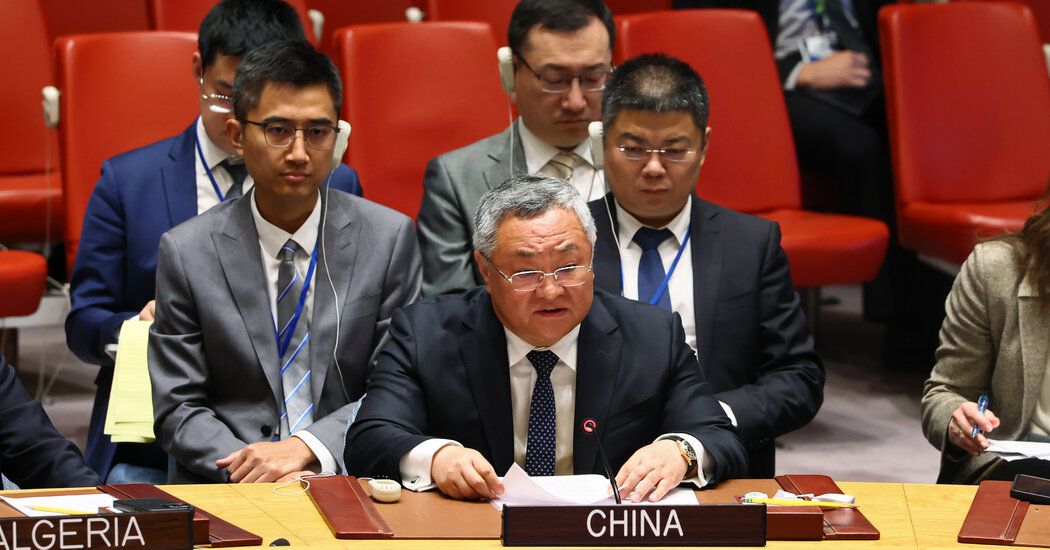China said the United States has hurt its reputation as a global power and its diplomatic standing by attacking Iran’s nuclear facilities while it was engaged in talks with Tehran.
“Iran is harmed, but also harmed is U.S. credibility — as a country and as a party to any international negotiations,” Fu Cong, China’s ambassador to the United Nations, told China’s state broadcaster on Sunday.
In the battle for global narratives, China has long cast the United States as a warmonger and a destabilizing power while presenting itself as a responsible global leader championing peace and fairness.
At an emergency meeting of the Security Council on Sunday, Mr. Fu said that China condemned the U.S. strikes and was joining Russia and Pakistan in drafting a U.N. resolution calling for a cease-fire, the safety of civilians and a start to peace negotiations.
The criticism of the United States was echoed in Chinese state media reports on Monday, with the official news agency, Xinhua, accusing the United States of escalating violence in the region.
“The worsening situation in the Middle East is a stark reminder that power politics and military interventions lead to nothing but chaos and instability,” the article said.
In a separate editorial on Monday, the Communist Party tabloid, the Global Times, said the U.S. strikes had weakened “the foundation of the international security order.”
On China’s heavily censored internet forums, users have left furious comments about how Iran was deceived into thinking it was negotiating a nuclear agreement with the United States, only to lower its guard and become the target of U.S. bombs.
China’s rhetoric belies a more complicated reality. Beijing has been one of Tehran’s biggest backers, diplomatically and economically. Its purchases of almost all of Iran’s oil exports have helped a brutal Iranian regime stay in power and deliver support to its terrorist proxies abroad, including Hamas, Hezbollah and the Houthis.
It remains to be seen how China might use its influence over Iran as fears of a broader conflict grow. Secretary of State Marco Rubio on Sunday urged China to persuade Tehran not to make good on a threat to close the Strait of Hormuz, one of the world’s most vital waterways for the transport of oil.
“China will certainly oppose Iran” closing the strait, said Wang Yiwei, the director of the Institute of International Affairs at Renmin University in Beijing, because of China’s need for access to Iranian oil. But it would only do so on its terms and in its own time, he suggested.
“However, it would be improper, or even counterproductive, to discuss this with the United States, or to exert pressure on Iran at the request of the United States,” he added.
When asked on Monday what China would do if Iran closed the strait, Guo Jiakun, a spokesman for the Foreign Ministry, deflected and called on the international community to “step up its efforts to promote the de-escalation of the conflict.”
David Pierson covers Chinese foreign policy and China’s economic and cultural engagement with the world. He has been a journalist for more than two decades.
The post China Says the U.S. Damaged Its Own Credibility by Striking Iran appeared first on New York Times.




